...
Steven Sandage, a university scholar and research director at the Danielsen Institute at Boston University, has done extensive studies on clergy mental health. He’s concerned about how to support pastoral leaders once they graduate.
Thank you for your interest in helping our children grow in the knowledge and love of God! The Parish of
the Good Shepherd in Waban (Newton), Massachusetts, is looking for two Church School teachers to lead
our classes of pre-kindergarten/kindergarten and first–third grade children every Sunday from September
2023 through June 2024. Currently, the Parish of the Good Shepherd uses the Catechesis of the Good
Shepherd, a Montessori-style program of reflection and collaborative learning, as well as the Love First
program.
Time: Sunday mornings (2 hours on-site) and weekly preparation (1 hour, location flexible).
Stipend: $60/week ($2,280/program year) while classes are in session (38 weeks). Compensation is based on
the expected 2 hours of Sunday commitment at $20/hour, and 1 hour of studying the upcoming lessons
during the week (also at $20/hour). Any additional hours worked should be approved in advance and will be
compensated at the same hourly rate.
I. Qualifications
A. Experience with and enthusiasm for working with early childhood and/or elementary school
age children
B. Knowledge of (or willingness to learn) child-centered, experience-based teaching methods (a
Montessori-like curriculum)
C. Willingness to experiment with creative outdoor activities to help kids grow in their
relationships with God and one another
D. Practicing Christian with basic understanding of the Episcopal faith and tradition
E. Reliable, responsible, and consistent presence, and commitment to complete a full school
year of teaching
F. Successful completion of Massachusetts CORI background check and Safe Church training
(to be handled and paid for by the Parish)
G. If necessary, successful completion of the Catechesis of the Good Shepherd training in fall
2023 (to be paid for by the Parish)
II. Responsibilities
A. Arrive at the Parish by 9:30 a.m. each Sunday morning and plan to stay until 11:30 a.m.
B. From 9 to 9:55 a.m., prepare the Atrium classroom, welcome students and parents, and be
available to answer parents’ questions
C. From 9:55 a.m. to approximately 10:40/10:45 a.m., teach the Catechesis of the Good
Shepherd curriculum
D. Bring Atrium students into the 10 a.m. Eucharist at approximately 10:40/10:45 a.m. and stay
in the service until the end of the liturgy (typically around 11:15 a.m.)
E. Be available for discussions with students and parents from 11:15 to 11:30 a.m.
F. Practice the lessons for each week according to the Catechesis of the Good Shepherd
curriculum and framework; these lessons are already prepared and planned out in the
Catechesis of the Good Shepherd books (which you’ll have access to), and the teachers need
only spend time “learning the lesson by heart” during the week
G. Maintain the Atrium classroom, including posting appropriate displays and maintaining the
classroom materials (posting friendly signs, reorganizing the materials, etc.)
H. Recruit and coordinate sign-ups for “Doorkeepers” — rotating parent helpers to assist with
the Atrium lessons
I. Prepare written notes for inclusion in a newsletter to parents at least once each month
J. Participate in parent meetings and/or dinners at least twice each school year
K. Open the Atrium classroom for a Catechesis of the Good Shepherd Open House program
during regular Sunday hours at least twice each year
III. Term
A. The position will begin in September 2023
B. Position will extend through June 2024, with extension into future school years possible by
mutual agreement of the teacher and the Parish
IV. COVID-19 Precautions
A. You must be vaccinated against COVID-19
B. We follow the recommendations of the CDC and the Newton Department of Health in
determining future COVID-19 precautions, and we will adapt our classroom policies as
needed
To inquire further or to apply, please send the following materials to the Reverend Kristian C. Kohler,
Assistant Rector for Christian Education, at ce@goodshepherdnewton.org:
1. Cover letter
2. Resume
3. Three references (name, email, and phone)
Applications will be accepted on a rolling basis until both positions are filled.
Parish of the Good Shepherd
1671 Beacon St
Waban MA 02468
www.goodshepherdnewton.org
office@goodshepherdnewton.org
617-244-4028
The following is an excerpt from The Washington Post’s article “As churches shrink and pastors retire, creative workarounds are redefining ministry” by Elizabeth E. Evans, featuring a quote by Professor Steven Sandage, published on July 31, 2023. Read the full article.
...
Steven Sandage, a university scholar and research director at the Danielsen Institute at Boston University, has done extensive studies on clergy mental health. He’s concerned about how to support pastoral leaders once they graduate.
“They face even more distress and trauma than they did in seminary,” he said. “I see some seminaries and some religious bodies that seem to be in denial about those realities.”
...
This obituary was originally posted by the Observer Today and can be found here.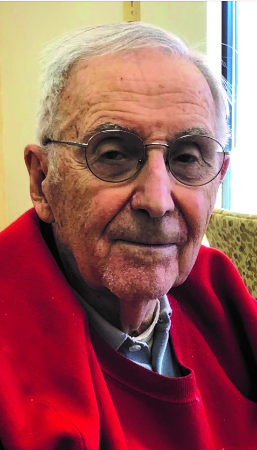
Rev. Harland J. West, 94, of Fredonia, N.Y., passed on to eternity July 5, 2023 at the Chautauqua Nursing Rehab Center. He was born in Glens Falls, N.Y. on Nov. 2, 1928, the son of the late Harland and Vannie Jordan West. His father worked construction jobs in New York and Pennsylvania before taking a job at Eastman Kodak and settling in Rochester, New York where Harland was raised. Harland graduated from John Marshall High School in Rochester in 1946, received his BA at the University of Rochester, a Master’s Degree from SUNY Geneseo, and a Duel Master’s Degree from Boston University School of Theology, where he was ordained. He also studied at the Harvard Divinity School. He served as Pastor of numerous churches in his long and distinguished career including: the Elba Methodist Church, Batavia Methodist Church, Geneseo and Asbury First United Methodist Church in Rochester. He was the Protestant Chaplin at Fredonia State. He served as Pastor at St. John’s Church in Cattaraugus and Disciples of Christ (Christian Church) in Dunkirk. Besides his church work, Harland was also active in various civic activities including: Boy Scouts of America, where he was a Scoutmaster, a head coach with the Fredonia Little League “VFW” team. He was also a member of the Village of Fredonia Citizens Advisory Committee, the Campus Community Relationship Committee and Lakeshore Medical Staff among others. Harland and his wife Thelma enjoyed traveling and especially enjoyed Disney World.
Harland is survived by three sons: Harland N. (Sheila), Charles and David West; grandchildren: Tammy (Scott) Janus, Dawn Loschiavo, David Jordan West II, Brandon West; great-grandchildren: Joseph Sulzbach, Hope Janus, Arie West-Tanner and Connor Anderson.
He is predeceased by his loving wife of 68 years, Thelma Sue McEntush West; his parents: Harland and Vannie Jordan West; daughters-in-law: Ann West and Lois West.
Visitation will be held at the LARSON-TIMKO Funeral Home, 20 Central Avenue, Fredonia on Friday Aug. 4, 2023 from 6-8 pm. A memorial service will be held at the Harvest Chapel Free Methodist Church, 39 Matteson St., Fredonia on Saturday Aug. 5, 2023 at 11 am, with a luncheon at the church to follow immediately after the service. Rev. West’s memorial service will be streamed live on Rev. West’s site on the Larson-Timko Funeral Home’s web site, larsontimkofuneralhome.com commencing at 11 am. In lieu of flowers, memorial donations may be made to the Rev. Harland J. West Memorial Fund, c/o Community Bank, 3909 Vineyard Drive, Dunkirk, NY 14048.
On-line condolences may be made at larsontimkofuneralhome.com. Arrangements by David J. Dengler, LARSON-TIMKO Funeral Home.
The United Church of Christ Norwell is a vibrant and inclusive congregation invested in transformational mission, community engagement, and faith formation across all generations. We welcome a joyful, Christ-centered individual as our next Associate Pastor, who will, in partnership with our Lead Pastor, provide spiritual support, preaching and worship leadership, and pastoral care to our congregation and wider community. The Associate Pastor will assume an active role in helping us live into God’s vision for our congregation, as articulated in our current strategic plan.
The Associate position will have a strong focus on youth ministry, assuming responsibility for leading and continuing to develop a dynamic and engaging program for middle and high school youth that fosters within them a love for God and neighbor. The qualified candidate will have a background in youth ministry, along with genuine passion for working with adolescents.
In addition, we seek a candidate who will provide pastoral leadership in other areas of our ministry, guided by their personal sense of call. The Associate Pastor will have strong organizational skills, be an effective and inspiring communicator, possess theological depth and a pastor’s heart, able to receive God’s people with compassion and minister to them confidentially.
Requirements:
- Be an ordained minister in the United Church of Christ, have (or be nearing) Privilege of Call in the denomination, or be in good ministerial standing in any other denomination.
- Possess outstanding interpersonal skills and embrace people from all walks of life, regardless of their social or economic status, race, sexual orientation, gender identification, or age.
- Foster and maintain an environment that is safe, welcoming, accepting, and free of judgment for all youth group members and enforce UCC Norwell’s Safe Church Guidelines.
- Work creatively and effectively as part of a team and with various staff members.
- Continue lifelong learning through professional and personal development.
- Is organized, thorough and flexible.
Title: Associate Pastor (FT)
Compensation: $95,000 - 100,000 salary + benefits
To apply email cover letter, along with either resume or profile to UCCNorwellsearch@gmail.com.
Additional Information: https://www.uccnorwell.org/
ECM seeks a Communications and Events Coordinator to join our team to craft and disseminate compelling content and organize events to further our mission of shrinking the racial wealth gap.
Role
The Communications and Events Coordinator will work in partnership with the Episcopal Organizing and Philanthropy teams to develop and implement strategic communications and to execute mission-aligned events. This position will be part of ECM’s Operations Team and report to the Chief Operating Officer. S/he/they will work collaboratively with ECM staff, board and partners to leverage ECM’s moral voice and amplify the stories of repair, healing and justice from ECM and our partners to have an impact on the racial wealth gap.
Primary Responsibilities
Communications
Coordinate the development and implementation of the communications strategy in partnership with the Executive Director and teams, to advance the mission by using ECM’s moral voice to amplify our work and that of partners to shrink the racial wealth gap.
Lead the generation of high-quality content–online and print–with consistent branding and messaging about ECM’s mission, goals, accomplishments and opportunities for engagement including newsletters, annual report, and website
Engage and support ECM staff and constituents (Board, Episcopal leaders, philanthropic and grassroots partners) to contribute content that tells the story of power building and actions toward shrinking the racial wealth gap
Update and maintain ECM’s website and social media presence—ensure that new and consistent article links, stories, and events are posted regularly
Research and develop new ideas for website and social media content.
Coordinate graphic design and branding consultants as required.
Track and measure the level of engagement with ECM’s outbound communications and social media over time
Support Philanthropy and Episcopal Organizing teams to design and/or translate their materials for online platforms.
Events
Coordinate the logistics for ECM events. The list of events includes, but is not limited to: Annual Meeting, ECM Board and Committee Meetings, Staff and Board Retreats, Episcopal Organizing convenings, Grantee Gathering, and Trainings
Engage staff team to support events as appropriate.
Qualifications
As a prerequisite, the successful candidate must believe in the core values of ECM and be driven by the mission. Beyond that, we are seeking a candidate with energy and skills to be part of and support a driven, bright, diverse team.
We are seeking an enthusiastic, self-motivated candidate who has excellent interpersonal and writing skills, excels at project management, and is skilled at balancing competing priorities and relationships.
Outstanding communication skills—written and oral
Bilingual abilities in Spanish desirable.
Demonstrated ability to write compelling materials.
Excellent organizational and negotiation skills.
Experience collaborating with colleagues.
Computer savvy with proficiency in MS Office and Google suite–ideally with graphic design software and photo/video editing experience.
Working knowledge of platforms/software for customer relations management, email marketing, social media.
Mission and service-orientation.
A commitment to racial and economic justice.
Desire and ability to work with diverse populations
Ability to collaborate with and communicate concerning a diverse political spectrum - including more mainline Episcopalians, grantees, and other BIPOC led power building organizations and networks,
Ability to travel within Massachusetts and work occasional evening and weekend hours.
About the organization
The mission of ECM is to build relationships and collective power across the Commonwealth of Massachusetts for racial and economic justice as the expression of God’s transforming love. We do this by organizing Episcopalians and funding BIPOC-led movement building in grassroots and faith-rooted organizations and by using our moral voice to share and amplify the work for justice and repair of ECM and our partners.
Founded in 1844, ECM is a well-respected organization that has a strong history of successfully partnering with Episcopalians and faith-rooted communities as well as funding grassroots organizations and movements. Early in 2022, ECM’s Board approved a mission alignment strategy that focuses our work on the racial wealth gap and adopts a reparative frame rooted in a spirituality of liberation. In the next 3-5 years, ECM will be implementing this focused strategy and identifying partners for this important work of change. To read more see our strategy kernel.
This strategic move expressed in our strategy kernel brings more cohesion and impact to ECM’s outward-facing work of moving money and people for racial and economic justice and reflects most profoundly our commitment to leading at the intersection of spirituality, healing, and justice. Internally, ECM has a strong commitment to embodying its organizational values of liberation and equity, transformational learning, purposeful action, collaboration and partnership, and spirituality and faith through our teams, practices and protocols.
Compensation Starting Salary: $60,000-$65,000. Excellent benefits including health and dental, 10% pension and 3 weeks paid vacation and 10 days personal/sick time.
To Apply Submit a copy of your resume with a cover letter outlining your qualifications, experience and motivations to admin@ecmteam.us.
Episcopal City Mission will not discriminate in its employment practices due to an applicant’s race, color, religion, sex, national origin, sexual orientation, gender identification and veteran or disability status.
This obituary was originally posted by Holt -Woodbury Funeral Home & Cremation Service and can be found here.
Rev. Kenneth A. Boyle, 88, born on November 14, 1934 passed away peacefully, with his loving wife of 35 years, Dale S. Boyle, at his side on July 5, 2023 at his home in Hopkinton, NH.
Through his ministry and devotion, Ken touched the lives of thousands of people. Gracious and kind to all, Ken showed a generous interest in others and above all else deeply loved family, friends, and God. Ken graduated from Tufts University and Boston University School of Theology. He served as a minister for over 57 years in multiple parishes, including Four Corners Chapel of Cumberland, RI, Second Congregational Church and Candleberry Chapel of Attleboro, MA.
He is survived by his children, Kenneth Boyle, Jr. and his wife, Virginia Boyle, of Bristol, RI, Evangeline Boyle of Mansfield, MA, Brenda Paradis and her husband, Mark Paradis, of Hopkinton, NH and Michael Leighton and his wife, Danielle Leighton, of York, Maine. He is also survived by his stepchildren, Kathryn Wilson and her husband, Thomas Pink, of North Conway, NH and Jennifer Fitzgerald and her husband, James Fitzgerald, of Franklin, MA. He was predeceased by his son Bradford Boyle and daughter Denise Young. He was the adoring grandfather of Cordelia Boyle, Nicolas Paradis, Benjamin Paradis, Rebecca Paradis, Madeline Boyle, and Katelyn Williams.
The son of Etta and Milton Boyle, Ken grew up in Melrose, MA. He is survived by his siblings Irene Gerwick and Lawrence Boyle. He was predeceased by his siblings, Milton Boyle, William Boyle, Mildred Perkins, and Loretta Crawford.
There will be a private interment ceremony for family.
A Celebration of Life for Reverend Boyle will take place on August 12, 2023 at 11:00 am at The First Baptist Church in Medford, MA.
In lieu of flowers, donations may be made to The First Baptist Church of Medford or St. Judes Hospital.
The Holt-Woodbury Funeral Home & Cremation Service Hillsboro, NH is assisting the family.
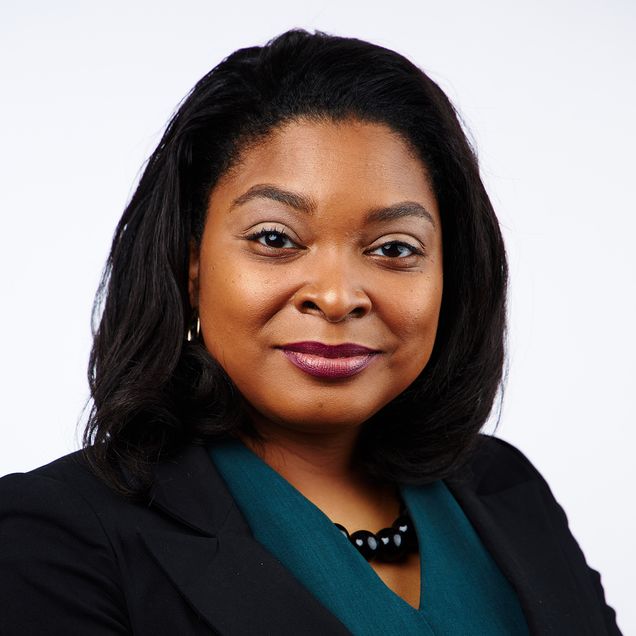
The Boston University School of Theology (BUSTH) is pleased to announce that Assistant Professor of New Testament Shively T. J. Smith will serve as the inaugural director of the School's Doctor of Philosophy (PhD) program, effective July 1, 2023. In this new role, Prof. Smith will work closely with Associate Dean Bryan Stone and the Office of Academic Affairs, and she will also liaise with the Advanced Studies Committee and the leaders of the PhD Student Association. This operational change seeks to strengthen the professional formation of BUSTH’s PhD students.
“The appointment of Prof. Smith to this new role is a major step forward for the School’s PhD program and its mission of forming the next generation of innovative teachers, cutting edge researchers, and socially engaged thought leaders,” says Associate Dean Stone. “Prof. Smith brings vision, creativity, and a love for theological education that is precisely what we need in this moment.”
The director of the PhD program will guide student and program assessment, PhD admissions and orientation, and communicate with PhD students about program requirements and changes. As she begins her work in this role, Prof. Smith will initially focus on teacher training dimensions of the PhD program, and will soon provide advisor assignments to incoming scholars.
“I am excited to serve the STH community as [the] inaugural director of the PhD program,” says Prof. Smith. “Working to deepen and extend our program’s formative impact on students requires collaboration intent on deep listening, responsive experimentation, imaginative visioning, and ongoing evaluation. I look forward to partnering with [BU]STH’s doctoral students, faculty, and staff to extend our program’s global legacy in ways attentive to the professional currents awaiting our students after earning a Boston University School of Theology PhD.”
By Eunil David Cho, Assistant Professor of Spiritual Care and Counseling and Co-Director of the Center for Practical Theology.
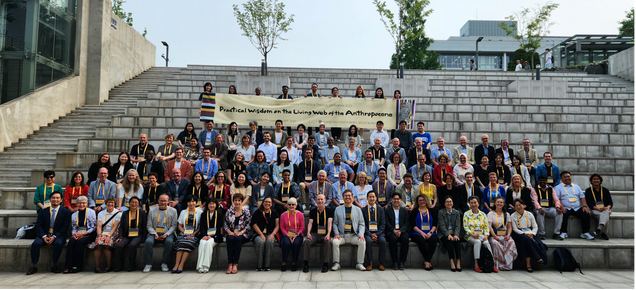
Last month, practical theologians across the globe came to Seoul, South Korea to attend the biennial meeting of the International Academy of Practical Theology (IAPT) held at Yonsei University from June 7th to 11th. The theme of the conference was titled, “Practical Wisdom on the Living Web of the Anthropocene.” This highly anticipated international conference invited scholars from Asia-Pacific, Africa, Europe, and the Americas to reflect on the intersection and interconnectedness of technology, political and economic dynamics, the haunting history of colonization and wars, and the competing relationship between the humans and the earth.
Many STH faculty, students, and alums both from North America and Korea participated in this important event.
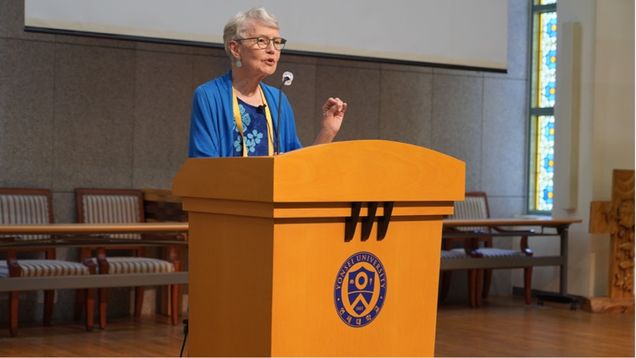
Mary Elizabeth Moore, Dean Emerita of the School of Theology and Professor Emerita of Theology and Education was one of the keynote speakers and delivered a lecture titled, “Wisdom of Trees, Ants, and Human Communities: Practical Wisdom at a Crossroads.” Bryan P. Stone, Associate Dean for Academic Affairs, E. Stanley Jones Professor of Evangelism, and Co-Director of the Center for Practical Theology (CPT) and Rebekah Neuberger, MDiv candidate co-presented a paper titled, “Cinematic Nature Horror as a Resource for Practical Theology in the Anthropocene.” Eunil David Cho, Assistant Professor of Spiritual Care and Counseling and Co-Director of CPT also presented a paper titled, “Eco-Anxiety is Racial Anxiety: Taking Racism Seriously in Practical Theology in the Era of Eco-Anxiety.”

BUSTH Alumni Soo-Young Kwon (MDiv’95), Professor of Pastoral Counseling and Coaching at United Graduate School of Theology, Yonsei University and Min Hyung Lee (MDiv’08, STM’10, PhD’18), Assistant Professor at College of Paideia, Sungkyul University both served as members of the local steering committee and played key roles in organizing this international conference. Lee also served as the moderator for Dean Emerita Moore’s keynote lecture. Alumnus Seokjin Oh (STM’11), Visiting Assistant Professor of Liturgical Studies at Methodist Theological University served as the main worship presider who designed and led the opening devotions throughout the conference.
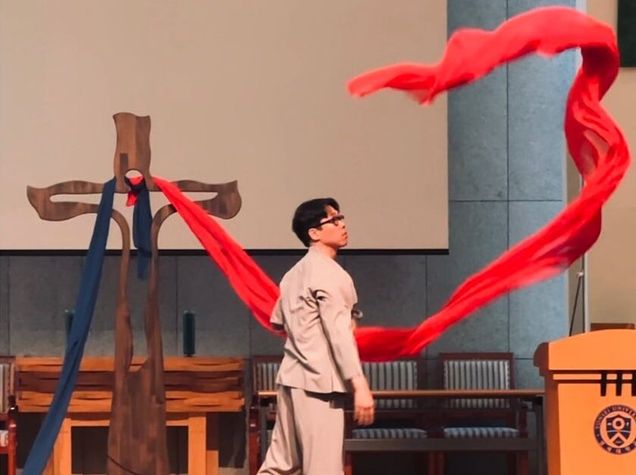
Finally, during the conference, Dean G. Sujin Pak hosted dinner and a reception in Seoul welcomed about 20 STH alumni and friends in Korea. Furthermore, Prof. Cho hosted a separate gathering for the incoming Korean students who will be joining the STH community this fall.
Tokyo Union Church (TUC) is seeking an English-speaking Senior Pastor with strong experience in international ministry. This four-year appointment, ideally starting in June 2024, offers a unique opportunity for personal and professional growth while living in the heart of Tokyo, Japan.
Established in 1872, Tokyo Union Church has been a spiritual home for Christians from various churches and nationalities, united by their faith in the Lord Jesus Christ. As an independent and financially self-supporting church, TUC has a rich history and a strong commitment to serving the community in Tokyo and Japan.
We welcome ordained ministers from a church eligible for World Council of Churches (WCC) membership.
For more information on Tokyo Union Church, visit our website [https://www.tokyounion.org/]
TO APPLY
https://www.tokyounion.org/opportunity
Applications close on August 15th, 2023
Address: 5-7-7 Jingumae Shibuya-ku, Tokyo, JAPAN 150-0001
Central Baptist Church, Jamestown, RI seeks a part-time pastor.
The congregation of Central Baptist Church comprises members from many different denominations. While the successful candidate should be familiar with American Baptist traditions, we are open to interest from applicants with existing ordination in other denominations.
Visit http://www.cbcjamestown.com/CBC_Job_Description_Part-time_Pastor.pdf for the full job description.
Compensation: 5 weekly units of time at $125-150 per unit, depending on level of experience. (A unit is defined as a morning, afternoon or evening. Preparation and delivery of Sunday service = 2 units.) Four weeks/year vacation.
To apply for this position, please submit your resume and cover letter to: Pastor Search Committee, Central Baptist Church of Jamestown, P.O. Box 295, Jamestown, RI 02835
email: cdavisolds@abcori.org
Website: cbcjamestown.com